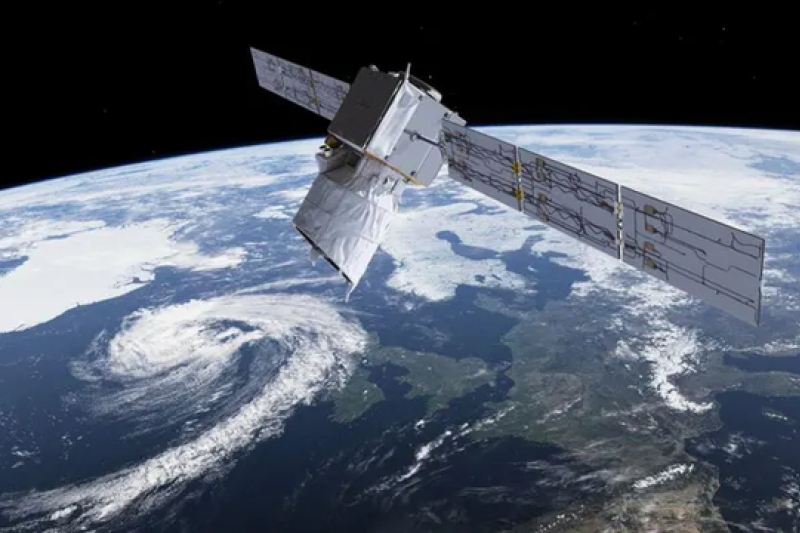Albania Reinforces Internet Infrastructure With Starlink Service
Earlier in 2024, Starlink welcomed Albania onto its ever-growing list of accepted regions. As the government looks to improve the country’s internet infrastructure by investing in subsea internet cables, Starlink access in Albania represents another step forward now that citizens can access cutting-edge satellite technology.
So far, just a fraction of Starlink is online with 6,000+ satellites in orbit. 42,000 satellites are planned in total, so citizens should expect satellite internet to become more commonplace in the future. If successful, this new form of delivering the internet could equalize service quality and bypass a lot of infrastructural development on the ground.
Source: Unsplash
Why Internet Access is Important
Mere decades ago, the internet was considered a luxury in the world’s most developed regions. That has changed, now that the internet and other digital services are integrated into everyday life. As individuals, we can use the internet to work remotely, find answers to any questions on our mind, and keep in touch with those who live far away from us. On a broader scale, the internet enables mass communication, distributes modern media enterprises, and even supports public services managed by the government. Behind the scenes, a lot of industries that don’t operate online still use the internet to organize their business, become more efficient, and cut down on operating costs.
Then there are those industries that do exist online, with no meaningful presence in the real world. Without the internet and modern infrastructure, these companies wouldn’t be able to do business. These are more common in entertainment, best seen with video streaming or iGaming sites, for example.
Online casino sites use a digital platform that is distributed through the internet, to users who can receive games using their own online connections. When a user logs into an online slots real money service, they get access to a large library of differently themed slots, plinko games, and even live dealer tables that use the internet to broadcast themselves for an online audience that can interact with the game. These services rely on their customers having a reliable internet connection, otherwise the whole business model falls apart. This means that internet infrastructure isn’t just about individual quality of life, but also economic support for business in Albania and beyond.
Albania’s Internet Infrastructure
That’s why Albania is making moves to improve its online infrastructure, because it’s an investment into the country’s future industries including some that haven’t even been invented yet. This is partly why the Albanian government collaborated with 4iG Plc to construct a new “digital highway” subsea internet cable joining Albania to the Mediterranean and Europe at large. You can read our full coverage here.
Per the latest data from 2023, internet penetration in Albania is over 80% and from a population of 2.7 million, roughly 2.2 million of them use the internet regularly. The median fixed internet connection speed was 44.63 Mbps, marking a 42% increase over the speeds of 2022. It’s important to achieve faster and faster internet speeds, to keep up with growing data demands from our digital services. As of 2024, readers should expect speeds to have increased more over the last twelve months.
The Rise of Satellite Internet
While Albania’s new subsea internet cable is still ongoing, the country was added to Starlink’s list of over 100 accepted regions over the summer of 2024. At a fundamental level, the modern internet relies on those massive cables that connect the world’s continents to one another. However, the rise of satellite internet mega-constellations may present a whole new way to deliver the internet across the world.
After starting its very first launch in 2019, SpaceX’s Starlink service has been consistently putting satellites into low-earth orbit over the years. As of late 2024, 6,000 out of 42,000 satellites have been placed, so roughly 15% of their planned mega-constellation. Each satellite has a lifespan of approximately five to seven years, after which it will be safely de-orbited and replaced.
Starlink works by providing users with a special dish that receives data from the satellites far above it. Those dishes can be affixed to a residence, a portable home, or even carried by hikers to access internet in deeply rural areas. One of the main advantages of satellites is that it equalizes access to online services, so rural, underdeveloped communities can get high-quality internet.
Source: Pexels
Getting Satellite Internet in Albania
Albanian citizens can acquire a Starlink router for approximately 42,500 leks – the equivalent of €418 or $449 – plus a subscription that costs 6,500 leks every month. This Albanian expansion comes as part of a larger move into the south-eastern countries of Europe, bringing Starlink to neighboring North Macedonia and further eastern regions like Romania and Bulgaria. In time, SpaceX hopes to expand its service to cover every country on the planet.
However, Starlink isn’t the only business pursuing satellite internet technology. Amazon is also trying its hand at building a mega-constellation as part of Project Kuiper. This project is much younger than Starlink but nevertheless hopes to provide widespread access to low-latency, high-quality internet once it is active.
By 2025, Amazon hopes to launch the service while growing a constellation of 3,000 satellites. Just like Starlink, it may take some time for the Project Kuiper service to become available in Albania.
Until satellite internet is the norm, both government and private sector services in Albania will continue to track and improve the nation’s online access. If a mega-constellation is put in place, it could act as a backup, reinforcement, or outright replacement to a lot of the cable-based infrastructure we use today.













